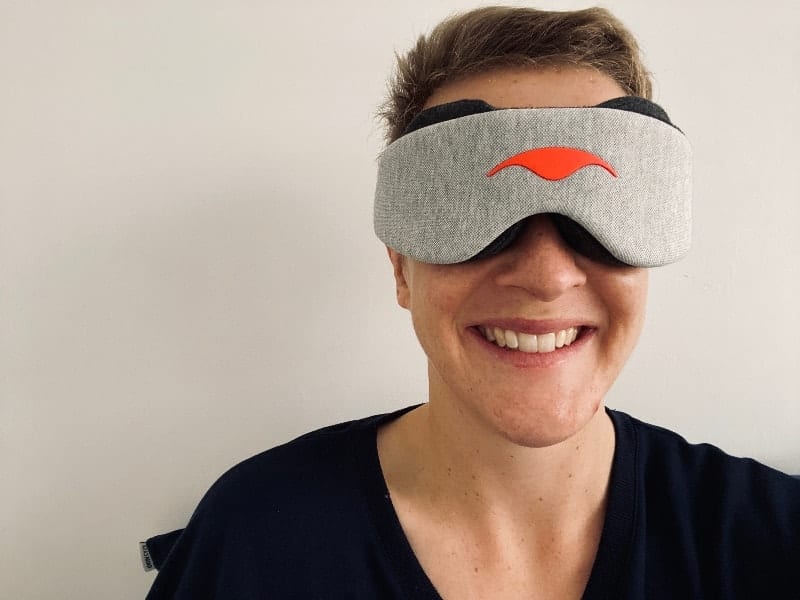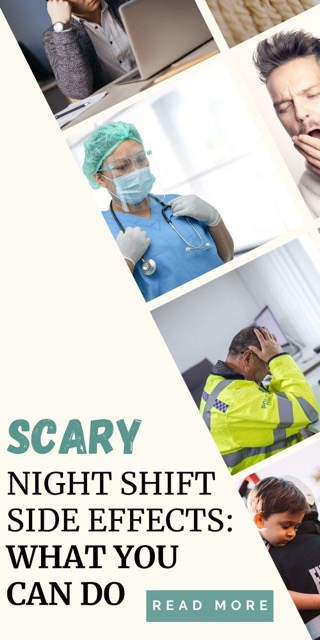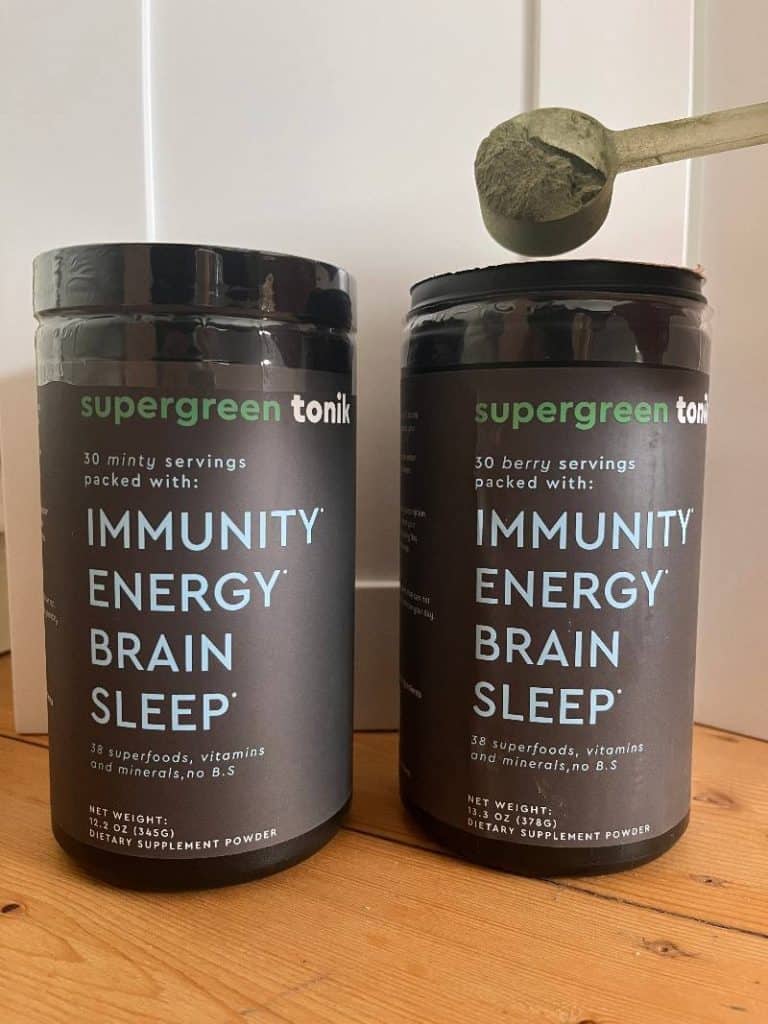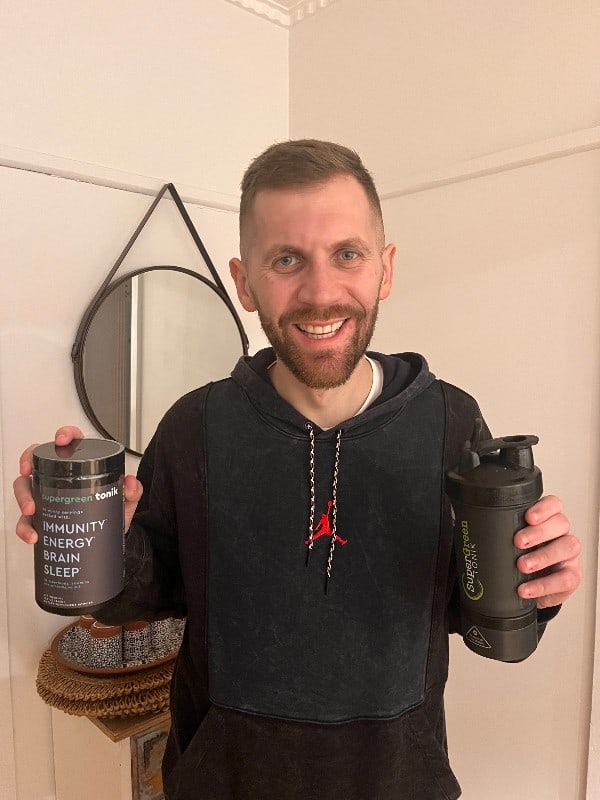Disclosure: This page may contain affiliate links, meaning we receive a commission if you decide to make a purchase through our links, but this is at no additional cost to you. Please read our disclosure and privacy statement for more info.
Working the night shift has been proven to be detrimental to your health. Left ignored, these adverse side effects can even lead you to an early grave. That’s a scary two opening lines! But that’s why it is so important for you, as a night shift worker, to be proactive with your health.
Night shift side effects can include sleep deprivation, obesity, cardiovascular issues, a weakened immune system, low levels of vitamin D, cancer, depression and injury. Though confronting, try and avoid them by creating a sleep cave, limiting blue light, exercising often in the sun when able, and consuming healthy, well-timed meals.
Taking the right steps now can help restore your mind and body in order to go into battle prepared. Your lifestyle choices and daily habits will determine how well you’re able to fight off the harmful effects of working the night shift.
Sleep Holds the Key To Night Shift Success
How important is sleep? Sleep is so important to your health that you spend roughly one-third of your life doing it. Your mind and body perform vital tasks during those precious hours of downtime.
While you’re asleep, events from the day are being stored into long-term memory. Your body makes repairs to worn-out organs and tired muscles. Most importantly, your digestive tract flushes out your system to keep your immunity boosted.
Sleep has an important role in how your day will proceed. Waking up tired may cause you to load up on caffeine or sugar to get you jump-started for the day. Then, before long, you find yourself making another pot of coffee or snacking on candy loaded with sugar just to get through the work.
Not getting enough sleep impairs your ability to think clearly. It affects your decision-making skills. Plus, being tired slows your reaction time much in the same way as being inebriated.
Lack of sleep even affects your interactions with other people. Perhaps you’re more agitated by the traffic as you drive to work. Maybe you’re easily annoyed by that overly-cheerful coworker or short-tempered with a rambunctious child. What usually would be perceived as an inconvenience can feel catastrophic when you’re not getting the rest you need.
Addressing your inadequate sleep is imperative to your overall wellness. Continued lack of sleep over a long period of time results in greater risks to your mental and physical health. Let’s take a closer look at the most common night shift side effects linked to poor quality of sleep.

8 Most Deadly Night Shift Side Effects
Working the night shift doesn’t mean a guaranteed death sentence. But it does mean you need to be more cautious of the lifestyle choices you make.
In addition, your genetic predisposition to certain illnesses and diseases may increase your risk of experiencing these night shift side effects.
The most challenging aspect of this group of side effects is they are interlinked in a twisted cause-and-effect relationship. To put it another way, each of these side effects can be the creator of another side effect or the result of one. As a result, it can be difficult to determine the root problem.
1. Chronic Sleep Deprivation
Defined as an accumulation of sleep debt over an extended period of time, chronic sleep deprivation’s symptom severity can range from mild to severe. Signs you may be suffering from chronic sleep deprivation include:
- low energy
- not feeling refreshed after sleeping
- difficulty concentrating
- sleepiness
- heavy eyes
- excessive yawning
- dark circles under your eyes
- drifting to sleep at work or while driving home
- easily irritated
Mood swings are common when you are exhausted. This negatively impacts your relationships at home and on the job. In addition, you are at higher risk for developing anxiety or depression.
Chronic sleep deprivation hinders your mental clarity making it difficult to think critically and accurately analyze a situation. You may have trouble staying focused or concentrating on a problem. This leads to mistakes, accidents, injury, and sometimes death.
Health risks associated with chronic sleep deprivation consist of:
- high blood pressure
- weight gain
- diabetes
- insomnia
- shift work sleep disorder
Keep reading – Does Night Shift Shorten Your Life? 10 Impacts of 3rd Shift

2. Obesity
Obesity is defined as excessive fat accumulation where your percentage of body fat exceeds healthy levels for your height.
According to the World Health Organization (WHO), a Body Mass Index (BMI) above 30 is considered obese. Studies show that night shift workers have nearly a 30% higher risk of becoming obese than daytime workers.
Working the night shift disrupts your body’s natural circadian rhythm. It also interrupts the normal schedule of your digestive tract. Add too much cortisol from being overly stressed and you have a recipe for becoming overweight.
Other reasons night shift workers are more likely to become obese may be due to the following:
- poor food choices
- inconsistent eating schedule
- lack of physical activity
- not enough sleep
- too much sleep
Health issues related to obesity are:
- heart disease
- high blood pressure
- high cholesterol
- sleep apnea
- diabetes
- gallbladder disease
- osteoarthritis
- stroke
Video – Night Shift Eating Schedules Your Digestive System Will Love. We also talk more about obesity and it’s link to the night shift over here in another post we wrote.
3. Cardiovascular Issues
Battling your circadian rhythm by working at night and sleeping during the day puts stress on your entire system. Your heart has to work even harder when you’re not getting the quality downtime you need to decompress from a difficult shift at work.
Heart issues can become compounded when you’re not eating healthy foods or getting enough exercise, both common problems for night shift workers.
As a night shift worker, you are at a higher risk of developing one or more of these cardiovascular issues:
- high blood pressure
- coronary heart disease
- atrial fibrillation
- heart attack
- clotting that leads to a stroke (more common in swing shift workers)
4. Weaker Immune System
A weakened immune system means you’re more likely to get sick. Your frequency of experiencing illness increases. And chances are, with a weaker immune system, your illness symptoms are more intense than someone whose immunity is strong.
The health of your immune system is tied to your digestive tract and how well it’s being cared for. As a night shift worker, your digestion is already negatively impacted by the disruption to your body’s circadian rhythm. Eating unhealthy foods and not getting enough sleep will put added strain on your immunity.
A simple way Dan and I boost our immunity is through drinking SuperGreen TONIK and Red Tonik. It’s a powdered supplement that fills the gaps with the healthy bits I may have missed in my diet. It’s not a meal replacement but something we drink daily to give us an extra boost! See the Human Tonik website to try it out.

5. Low Levels of Vitamin D
Known for its role in the health of your teeth and bones, vitamin D has other important functions that impact your well-being. You may be surprised to learn that vitamin D also plays a part in your brain’s involvement with sleep regulation. Being deficient in vitamin D from lack of sunlight exposure or poor diet can lead to disruptions in your sleep.
Vitamin D plays a part in the body’s distribution of melatonin, a hormone responsible for regulating your circadian clock. It also promotes new cell growth in the body. It’s possible that low levels of vitamin D contribute to the development of cancer.
Maintaining proper levels of vitamin D is crucial to your body’s production of insulin. It also plays an important role in your immunity. Too much vitamin D, on the other hand, can lead to stomach pains, kidney issues, and an agitated or confused mental state.

6. Cancer
There are conflicting reports regarding the link between working the night shift and an increased risk of developing cancer. Some studies indicate a greater chance of cancer. Other studies show an insignificant connection between working the night shift and cancer.
Theories on why working the night shift may increase your chances of developing cancer point to long-term disruptions to your circadian rhythm. Others believe the link is due to extreme levels of stress hormones.
Some speculate that the increased cancer risk has more to do with the unhealthy habits of night shift workers such as poor diet, smoking, and alcohol consumption.
Types of cancer that may be linked to working the night shift for long periods of time include:
- breast cancer
- colorectal cancer
- prostate cancer
- lung cancer
- digestive system cancers
7. Depression and Mood Disorders
Depression is a complex disorder that still isn’t fully understood by experts. It was once believed to be linked to low levels of serotonin, one of the hormones responsible for regulating your sleep/wake cycle. Now, evidence indicates this may not be accurate.
Night shift workers may be at risk for symptoms of depression because of the disruption to their personal lives. Some have indicated feelings of stress from missing out on family activities. Others have experienced the sensation of being disconnected from others in their day-to-day life.
In addition, night-shift workers have reported losing their sense of purpose. They’ve expressed an absence of feeling alive and valued. Either of these situations can be symptoms of burn-out and if left untreated, develop into more serious depressive states.
Related posts: Can Working the Night Shift Cause Anxiety?

8. Personal Injury
Night-shift workers who don’t get enough sleep are at a higher risk of being injured while on the job. Your ability to focus and make decisions is impacted by how well-rested you are and if you’re too tired you don’t function as well. Likewise, being tired impairs your reaction time, balance, and coordination.
Severe drowsiness from inadequate sleep or working long shifts is equivalent to being impaired by alcohol. This can interfere with how well you do your job, as well as your interactions with co-workers. Tiredness from a difficult shift can also result in an accident while driving home after work.
How to Combat Night Shift Side Effects
The first thing you need to do is evaluate your daily routine to see where improvements can be made. Since sleep is the most important factor in every night shift side effect, you should begin by assessing the quality of your sleeping environment. Make adjustments to such things as;
- light exposure (see our eye masks and blue light-blocking glasses below)
- the temperature of the room
- noise factors
In doing so, it will make a world of difference in your quality of sleep. See our other favorite sleep aids here.


The next thing you need to do is analyze your daily eating habits. Choosing to eat the right types of food during the correct time of day can make the difference between falling asleep at bedtime or nodding off at work. Making sure not to ingest too much sugar or caffeine before going to sleep will give you a greater chance of adequate and high-quality sleep.
Finally, you need to create a balanced daily routine that includes exercise and meditation. Being active can help to alleviate stress, keep off excess weight, and build your cardiovascular strength. Adding in a few minutes of meditation each day is a great way for you to bring calm into your routine.
While it may seem like working the night shift has more risk than reward, you have the power to combat these lethal side effects. Taking care of your health starts with getting the right amount of sleep, making healthy food choices, and staying active. Learning how to thrive as a night shift worker may require adjustments to your routine, but a few small changes can make a world of difference for you and those who count on you.

Disclosure: This page may contain affiliate links, meaning we receive a commission if you decide to make a purchase through our links, but this is at no additional cost to you. Please read our disclosure and privacy statement for more info.

Recent Posts
An examination of the night shift professions, that while sometimes underappreciated, are necessary for civilization, in its current form, to exist. A city can be thought of as a machine. Each...
Culminated from an exhaustive yet well-funded journey into the night, this article will prepare you for life outside of work while being a denizen of the dark. During days off, night shift...



